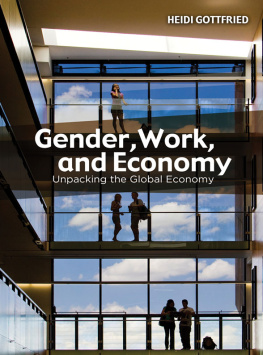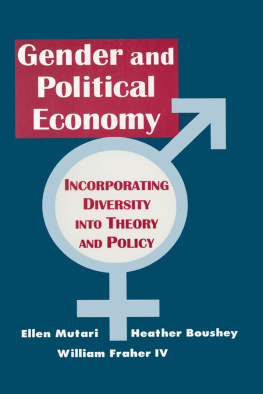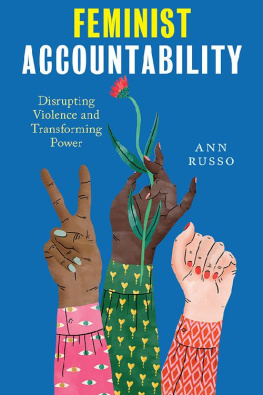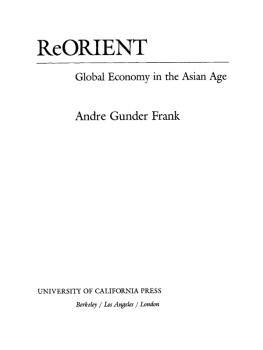Contents
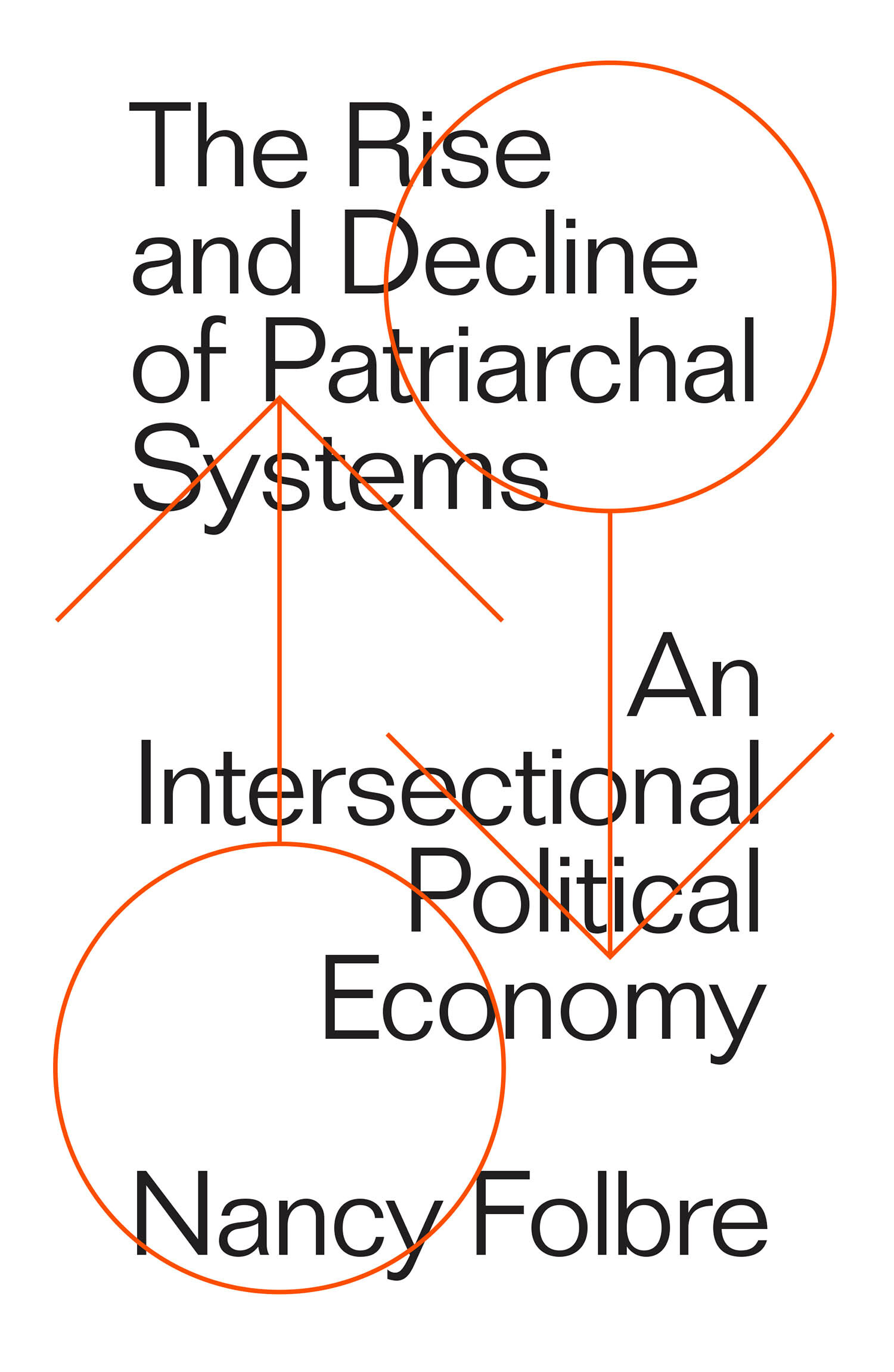
The Rise and Decline of Patriarchal Systems
The Rise and Decline
of Patriarchal Systems
An Intersectional Political Economy
Nancy Folbre

First published by Verso 2020
Nancy Folbre 2021
All rights reserved
The moral rights of the author have been asserted
1 3 5 7 9 10 8 6 4 2
Verso
UK: 6 Meard Street, London W1F 0EG
US: 20 Jay Street, Suite 1010, Brooklyn, NY 11201
versobooks.com
Verso is the imprint of New Left Books
ISBN-13: 978-1-78663-295-1
ISBN-13: 978-1-78663-292-0 (UK EBK)
ISBN-13: 978-1-78663-293-7 (US EBK)
British Library Cataloguing in Publication Data
A catalogue record for this book is available from the British Library
Library of Congress Cataloging-in-Publication Data
A catalog record for this book is available from the Library of Congress
Library of Congress Control Number: 2020948692
Typeset in Minion by Hewer Text UK Ltd
Printed and bound by CPI Group (UK) Ltd, Croydon CR0 4YY
Contents
Myth
Long afterward, Oedipus, old and blinded, walked the roads. He smelled a familiar smell. It was the Sphinx. Oedipus said, I want to ask one question. Why didnt I recognize my mother? You gave the wrong answer, said the Sphinx. But that was what made everything possible, said Oedipus. No, she said. When I asked, what walks on four legs in the morning, two at noon, and three in the evening, you answered, Man. You didnt say anything about woman. When you say Man, said Oedipus, you include women too. Everyone knows that. She said, Thats what you think.
Muriel Ruykeser
First published in Breaking Open , 1973
I have long been drawn, like a moth to a flame, to big theoretical questions about gender inequality, social division, and collective conflict. As I worked on this manuscript, my wings began to feel singed, and I considered either changing the order of words in the title, or adding more, as in, Rise, Decline, and Rise Again. Prophecy, however, is not my goal. We have much to learn from the evolution of patriarchal institutions, whichever way they twist and turn.
The intersectional political economy developed here insists on the need to actively construct broad alliances of disempowered groups. It emerged from collaborative efforts that crossed many disciplinary and political boundaries. I am grateful to my editor Rosie Warren for her keen observations and suggestions. Several past collaborators helped me develop key ideas: Lee Badgett, Michael Bittman, Elissa Braunstein, Michelle Budig, Paula England, Ann Ferguson, James Heintz, Julie Nelson, Kristin Smith, Jooyeoun Suh, Jayoung Yoon, Thomas Weisskopf, Douglas Wolf, and Erik Olin Wright. My colleague Carol Heim gave me patient, consistent, and discerning feedback. Gerald Epstein and Robert Pollin, co-directors of the Political Economy Research Center at the University of Massachusetts Amherst, provided steadfast encouragement and support. All my colleagues at the University of Massachusetts Amherst from 1975 to the present helped me think through the ideas here.
Many friends helped me redo a frightfully confused early draft. John Stifler gently corrected many rhetorical missteps and offered helpful substantive suggestions. Haroon Akram-Lodhi, Lourdes Beneria, Sam Bowles, Carol Heim, William Ferguson, and Thomas Weisskopf offered specific suggestions. Graduate students who participated in my political economy seminar on gender, race and class took nothing for granted and asked great questions. Discussion and debate with Katherine Moos and Luiza Nassaf Pires altered my thinking on some key points. Naila Kabeer helped immeasurably with a last round of revisions.
I benefited greatly from a number of previous opportunities to present bits and pieces of the ideas here, including the Festschrift Conference for Thomas Weisskopf, organized by the Political Economy Research Institute (thanks to Jeannette Lim); the David Gordon Lecture sponsored by the Union for Radical Political Economics (thanks to Fred Moseley); several Amherst College classes in Women and Gender Studies (thanks to Amrita Basu); the Gender Institute of the London School of Economics (thanks to Diane Perrons); the History of Capitalism Conference at Cornell University (thanks to Jefferson Cowie); the Patten Lectureship at Indiana University (thanks to Lynn Duggan); the European University in Florence, Italy (thanks to Laura Lee Downs); session on Patriarchy Revisited at the meetings of the American Sociological Association (thanks to Paula England, Sylvia Walby, and Vrushali Patil); lectures at Colorado State University (thanks to Elissa Braunstein and Anders Fremstad); University of Dublin and Glasgow Caledonian University (thanks to Sara Cantillon); University of Windsor, Ontario (thanks to Erica Stevens Abbitt); Wheaton College (thanks to Brenda Wyss); the Inter-University Women and Gender Studies Institute Conference at the University of Barcelona (thanks to Lourdes Beneria); the University of Wisconsin (thanks to Erik Olin Wright); the 2018 International Association for Feminist Economics Conference (thanks to Edith Kuiper and Barbara Hopkins); and discussions around a special issue of Daedalus on gender inequality (thanks to Nannerl Keohane and Frances Rosenbluth).
In fall 2019, participants at meetings celebrating the work of Sam Bowles and Herbert Gintis at Columbia University (thanks to Suresh Naidu and others) and at a conference celebrating the life of Erik Olin Wright (thanks to Michael Burawoy and others) helped me think harder about what I am doing here. I am particularly indebted to Debra Satz for her feedback. I am also grateful to discussions at the meeting on Epistemologies of Care: Rethinking Global Political Economy, organized by Jocelyn Olcutt.
The Covid-19 pandemic pounced upon the world just as I was making final revisions to this manuscript, a poignant reminder of global dependence on cooperation and care for others. My research on care work emphasizes its many distinctive characteristicsamong them, the difficulty of accurately assessing individual value-added. We can never know exactly what others have done for us or what, exactly, we have done for them. For better or worse, we produce and reproduce ourselves in concert.
Social divisions can and often do morph into forms of structural inequality that are both unfair and inefficient. One might worry that attention to divisions deeply rooted in the distant past would dampen hopes for an equitable and sustainable economic future. Not so. Such a future can only be nurtured by a critical analysis of long-standing patriarchal institutions that intersect, overlap, and interact with hierarchical institutions based on other dimensions of collective identity.
Abuses of collective power are more easily redressed when we understand their evolution. Their various forms are often linked in ways that render them vulnerable to similar forms of contestation. Both the decline and the persistence of gender inequalities tell us something about the trajectory of other forms of collective conflict. Complex histories of exploitation warn of the costly consequences of gain-seeking that devalues the current and future well-being of other people.
Feminism and Marxism have been described as partners in an unhappy marriage that some believe should lead to reconciliation, others to divorce. relationship, these two entities tell only part of a larger story of intersecting, overlapping forms of exploitation.



